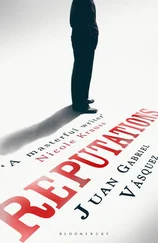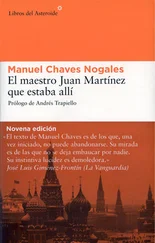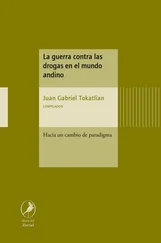My fingers get tangled up in her hair. I close my eyes, recognizing the rootedness of my hands in this movement.
“At first I hated you, you know? I thought you were cruel. I kept telling myself you didn’t deserve someone like me. Then I thought I was worthless. If I was unable to keep someone like you, I must be worthless. I was in love with you, that’s what it was. I still love you, of course, but before I loved you more than my own life. I don’t care if what I say sounds corny to you, I’m not a writer. That’s what I felt, that was—”
I kiss her. I don’t know if I kiss her so I won’t have to hear any more of her words, because each one of them hurts me and harms me. But I kiss her. It’s a quick kiss, barely a meeting of lips: Viviane puts her hand on my chest, gently, as if picking up a little bird off the floor, and pushes me away.
“I’d like to stay tonight,” I say quietly.
“You are not made to be with me. In fact, you’re not made to be with anybody.”
I think of my father’s eyes. The black iris, the shining cornea. I no longer hear Odile, the neighbor. She must be asleep, happy because she’s just spent the weekend with her boyfriend, impatient because she won’t see him for another five days.
“You better go,” says Viviane. “Tomorrow you’ll have to go to a pharmacy, I imagine, begin your treatment. We made a good couple. But you better go.”
It occurs to me that this might be the last time I see her. I feel sick for an instant, and my hand, as if by instinct, covers my lymph node. It’s a new movement: a sick man is an animal who learns new tricks. Sometimes, this gesture is a response to shame; other times, however, it’s a simple nervous tic. Like straightening my glasses on the bridge of my nose. Like touching Viviane’s hair. But now it’s time for me to go, although part of me doesn’t want to.
“Can I call you?” I say.
“Of course not. What for? Your moment of uncertainty is over, isn’t it? You’re not scared anymore.”
I leave. The stairs are dark; before closing the apartment door, I hear her say:
“Now you can go back to being independent.”
—
I PRESS THE SWITCH so a low-watt bulb lights the hallway for twenty seconds. I decide to take the stairs, as I did the last time I was in this building, and press the switches at each floor, and each bulb gives me a brief light, the twenty seconds necessary to get to the next floor and repeat the maneuver. That’s how I descend, from one floor to the next, from darkness to darkness, until I feel, as I make it to the sidewalk, the gray and cold of the night like fog in my eyes. I think Paris is small, and that, with a bit of luck, I’ll run into Viviane once in a while, at the market or the cinema. They’ll be those coincidences that tend to happen in a city like this, falsely grand and rather provincial, a city where people don’t often leave their own neighborhoods. I’ll see her face, we’ll exchange a couple of affectionate phrases. And that’s how, bit by bit, I’ll go on surviving.
The Solitude of the Magician
I
What happened inside his pocket struck Léopold as one of the most extraordinary things he’d ever seen — the interaction of a wedding band, a key ring, and a hand’s magical gesture — and he could not think it was a mistake, as everyone insisted at the time, to have publicly questioned a magician’s skills, even just an amateur magician, a mere weekend apprentice. The magician’s face (Léopold remembered the moment when he’d heard his name, Chopin, and hadn’t been able to ask whether it was a vulgar nickname or a coincidence) emerged from a thick turtleneck, and the smooth skin under his chin wrinkled when the man nodded or worried, and also wrinkled when Léopold approached the tallest lamp with the evidence of magic in his hand and his right heel searched out the switch on the parquet floor; the light came on and Léopold’s eyes stared at that miracle, a wedding band linked onto a key ring. Selma, his wife, saw him walk toward her, take her left hand, and slip the band, a single diamond set in the gleaming surface, back onto her finger, as if marrying her again, and she couldn’t help wondering, given that her marriage still seemed new to her the way shoes you don’t wear very often still seem new for quite a while, if this would continue to happen in the future: if small acts or banal circumstances would seem to belong belatedly to the same, now long-ago liturgy.
They had been married in a Catholic ceremony in which her cream-colored, rather than white, bridal gown had caught on the armrests of the seats, because she, willful girl that she was, had insisted the service be held outdoors beside the little stone chapel on the hill that faced Hamoir, in spite of the strong kite-flying wind at that time of year, and all just because it terrified her in the middle of July to be stuck inside the humid and sinister darkness of the Cathedral of Saint Paul, in Liège, with stained-glass windows, grimy with urban grime, that allowed no light through, and a door that on weekends appeared clogged with chocolate and cream gaufre stalls and diners’ cars and the diners themselves, families of clumsy children with clumsy hands who Selma could already envisage sullying her dress’s shimmering train with sweet sticky caramel, apple, or wild blackberry sauces. So Father Malaurie, of Xhoris, used a safety pin to tame his soutane, and blessed the couple without keeping the rice-paper pages of his Bible from fluttering like a caged bird, without ever finding out that the bride was pregnant, and without knowing, of course, to what extent the pregnancy was one of the most pertinent reasons for her being there that day, holding her veil with her hand so Léopold could kiss her and turning to face the wind so her hair wouldn’t tickle the groom’s face and make him sneeze at such a solemn moment or get in her eyes. Léopold’s kiss tasted of champagne cocktail; the shoulder of his formal suit gave off a whiff of mothballs that Selma reluctantly inhaled. That night she cried a little: she would have liked her father to still be alive to give her away in matrimony. Charles, her father, dead of throat cancer before she learned to speak; her daughter — Selma was magically sure it would be a girl — was fortunate because she’d have a living father, because she wouldn’t grow up as lonely as Selma had.
The dream of having a daughter had changed Selma’s way of moving, her way of touching Léopold (with whom she’d gone to bed barely a dozen times before a bout of morning sickness had hit her in the middle of Place Saint-Lambert), and later, when they were living together in the house on Rue de Lognoul, near Ferrières, she used to get up in the middle of the night, close the bathroom door so the white light wouldn’t wake up her husband, undress in front of the mirror, and lose herself in the contemplation of her body and the changes to her body, because attending to the details of her belly in profile, through the third, fourth, fifth, sixth months, was like watching the phases of a fleshy moon, a fantastic moon with protruding navel against the sky of aquamarine tiles. Her breasts grew until it was possible, by crouching a little in certain positions, to feel her skin resting on her skin, and that sensation, extravagant and at once monstrous, excited her; and her small aureoles darkened and the skin of her nipples hardened and turned porous, two sawdust beauty spots on the pale, round fullness. It was during that time that Léopold offered to host the first hunt of the season, in part for the small honor involved in his group of hunters — men associated with the industrial cleaning company that had maintained his family since 1959—in part for the delicate pride of socially introducing his wife and unborn daughter, one inside the other, a Russian doll. The features of Selma’s face were still those that had obsessed Léopold, but the puffy cheeks, the circles under the eyes revealing a certain exhaustion, and her forced smile confounded him, and at the moment of gathering the hunters in a circle for the maître de chasse to deliver instructions and lay down the rules, the moment Léopold had planned to bring Selma into the center of the circle and say some calculatedly amusing phrase such as No shooting any juvenile boars or aiming inside the encirclement, and this, gentlemen, is my wife, at that moment, dressed in green and gray and with his rifle slung over his shoulder, Léopold only managed to point to her with his gloved hand (it was cold), and in the hush that fell over the cobblestone yard all that could be heard was the hunters’ bewildered breaths, the dogs’ claws clicking against the cobbles, and the echoes of a piano sonata that someone had left on in the living room filtering through the glass. Then the hunters left, the doors of their four-by-fours banged shut and the dogs barked, and Selma was left alone in the yard. She whistled a few bars of the Pathétique : she remembered it because she’d practiced it as a young girl and failed at it. She never managed to understand what her teacher meant when she spoke of the exposition as something that should swirl, or of the transition between the grave and the allegro as the conversion of a caterpillar into a butterfly. She never liked butterflies; they didn’t disgust her, but frightened her absurdly: everyone around her knew this, except Léopold.
Читать дальше










